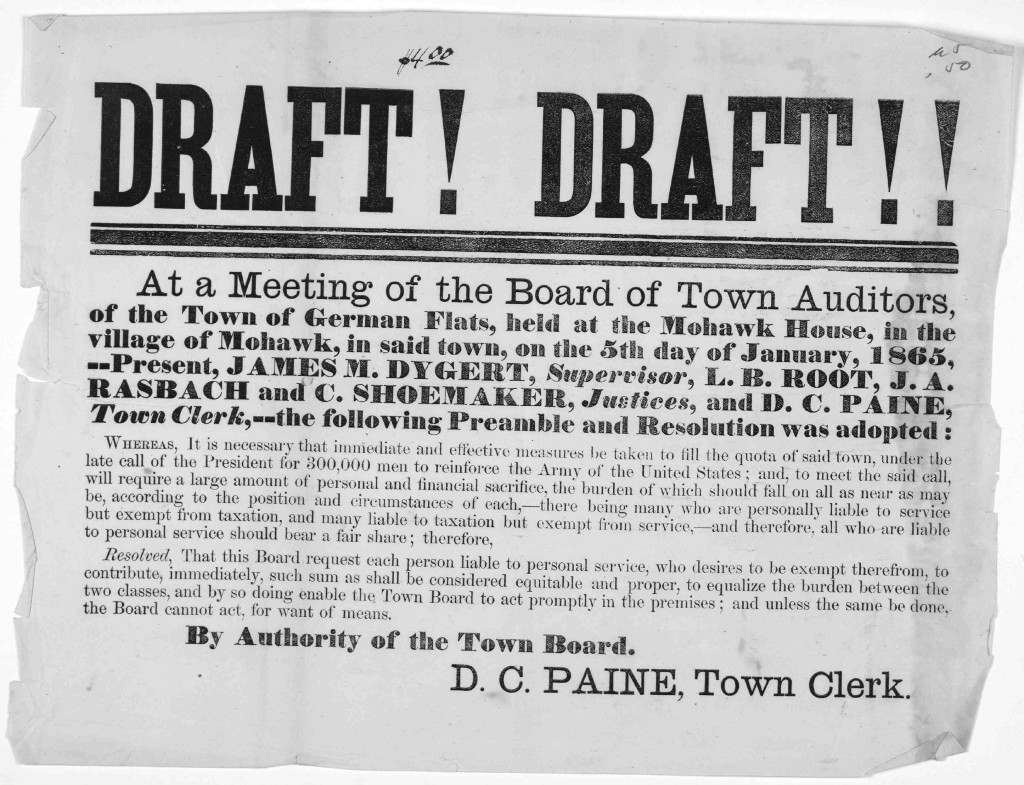After four years of war it was hard to scrounge up enough new recruits to satisfy the Union government’s draft quotas. The Seneca Falls supervisor was recruiting in New York City. Men were available, but there wasn’t enough money to pay the necessary bounties. A local editorial asked why Seneca Falls men who had enough money to procure substitutes were unwilling to buy bonds to keep their poorer neighbors out of the draft.
From a Seneca County, New York newspaper in February 1865:
Our Quota.
The filling of the quota of this town seems to be a very difficult undertaking. – No one here is “patriotic” enough to volunteer, and we are dependent entirely upon other localities for recruits. Supervisor Burt is making every effort to procure the men, but so far has succeeded in mustering only fifteen to the credit of the town. Our momed [sic] [monied] men do not seem willing to take the bonds and furnish the Supervisor the means with which to obtain the men, and many of them are very reluctant about cashing the bonds which they have pledged themselves to take. Perhaps they would like to see the mechanics and laboring men of the town conscripted, inasmuch as their brothers and sons have heretofore secured substitutes, mostly at the expense of the town. Conscription is not a very pleasant thing for poor men to look upon, and to be endured, when a few dollars could have prevented it.
A number of public meetings have been called for the purpose of raising money on the bonds, but with little success. The men who have all along been so anxious to save the town from the draft, have taken no part in the meetings, because, we suppose, there have been no political ends to subserve. A very pretty state of affairs, indeed.
It is very certain that we shall get no more men, unless there is sufficient interest in the matter among our monied men to induce them to take the bonds of the town. That the men can be obtained if the money is furnished, is well understood, and if a conscription is forced upon us, it will be owing to the criminal indifference of those who might have interposed to prevent it, without the least inconvenience to themselves.
It looks like back in January 1865 the town of German Flats [Flatts], New York faced a similar issue. However, in this town along the Mohawk River the government seemed to be encouraging non-taxpaying men who were liable to service to contribute whatever was within their means to the bounty pot:

